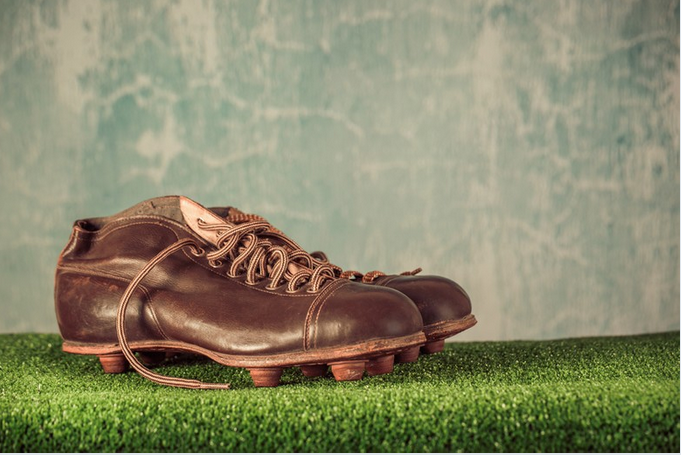
Aloha, native inhabitants! Each of you does this daily. And all together we do it for longer and longer. This is aging. Life expectancy in developed countries has doubled over the past 150 years.
This graph in a simplified form shows what exactly we lose and gain over the course of life. It is compiled from cohort data. Due to the fact that data for certain periods were incomplete, the curves of the graph do not cover all age categories. For example, not all data were collected among children, or by completely different methods. In addition, detailed studies among 80-100-year-olds became possible only recently - before that, most probands simply did not live to see such an advanced age.
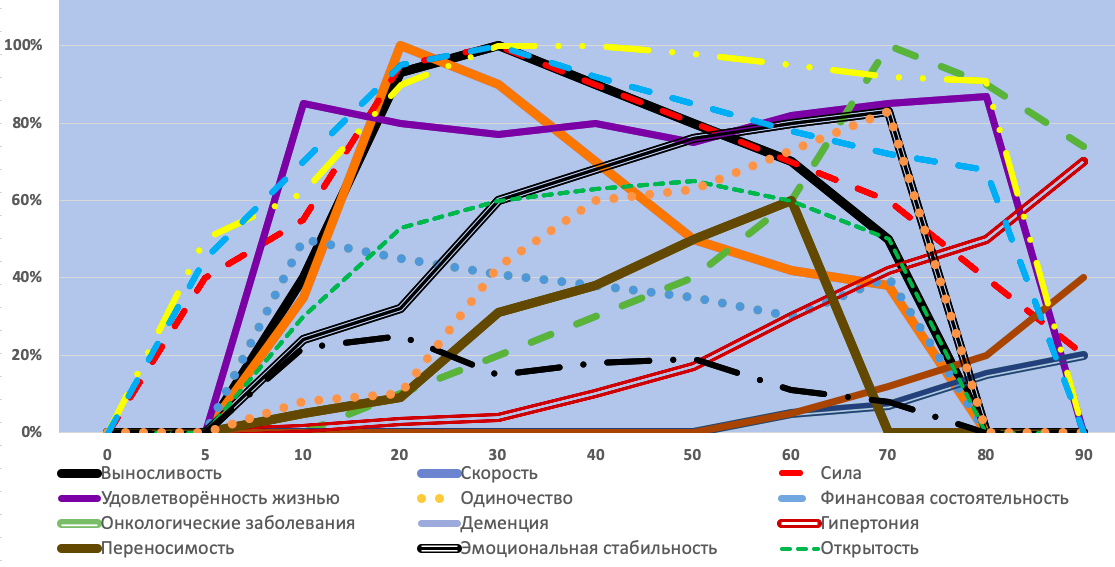
The maximum values attainable during a lifetime are taken as 100%. Now for the individual parameters:
(To follow the link to the data sources, click on the corresponding headings marked in purple)
Strength
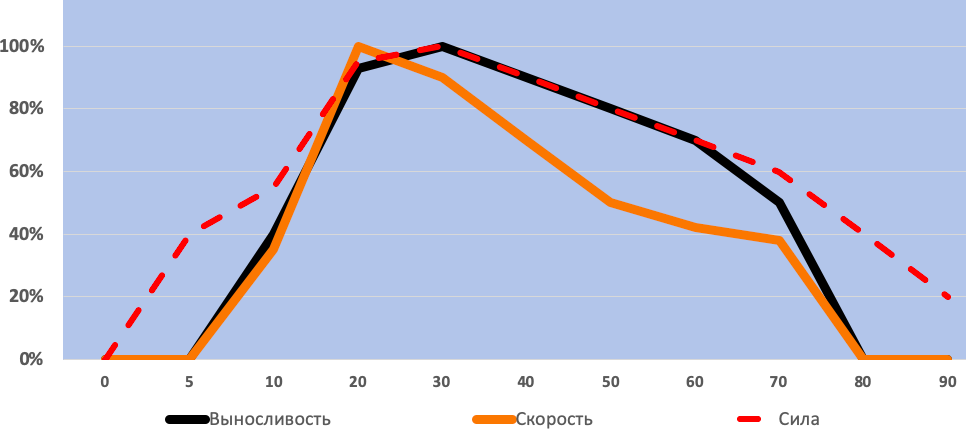
Muscular strength reaches its peak by the age of 30 and then begins to gradually decline. The volume remains the same, but due to the increase in adipose tissue (in the MRI image of the thigh, the fat is white, and the muscles are dark). This is if you do not train.
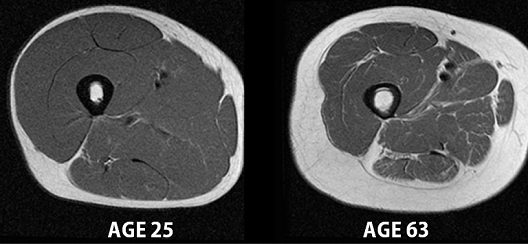
Speed.
This is - yes, and yes again. I feel like I can't do a lot of things as fast as 20-year-olds. For example thisdiving under the tape ... and a lot more. But, on the other hand, on the ascent to the mountains, me (and my asthma) are jokingly overtaken by 70-year-old lean old women in trekking boots and shorts. Some of them giggle into their fists at the same time.
Endurance
Endurance does not decrease as fast as speed, but it seems that this is because athletes were taken for endurance studies, not ordinary people.
Oncological diseases.
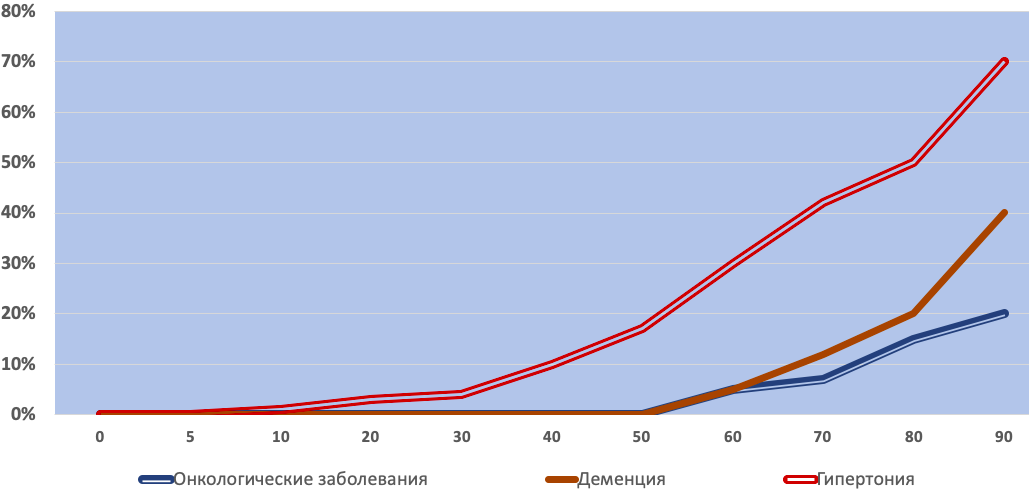
Here, only newly diagnosed oncological diseases are taken into account, therefore the data are somewhat underestimated. But even without that, it is clear that with increasing life expectancy, the likelihood of contracting cancer grows progressively. 75% of people over 80 have more than one chronic illness.
Dementia andcognitive skills (intelligence and logical thinking)
Dementia sneaks up unnoticed and hides under a thousand masks. I often hear from patients:
- As you train in the gym, you need to pump your brains. I'm not in danger of dementia, because I solve crosswords every day.
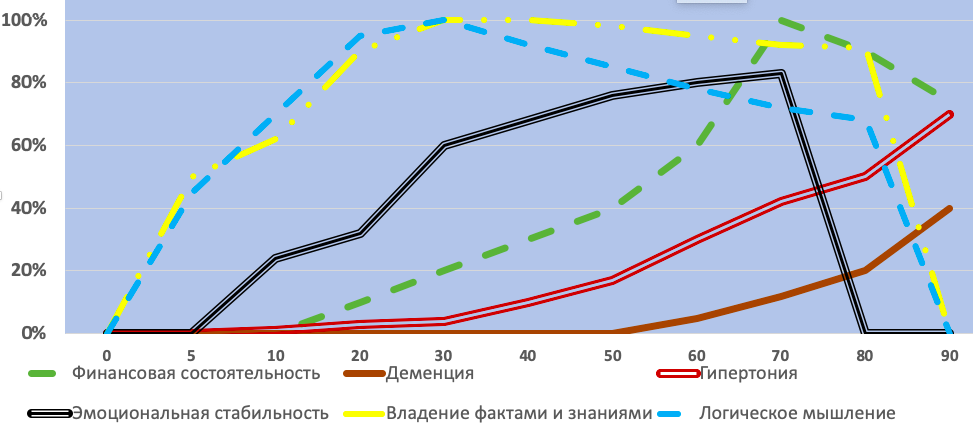
Is it so? Unfortunately not. The brain is a little more complex than the muscles. Dementia mows down everyone - erudites and polyglots, celebrities and philanthropists. But the higher the intelligence, the greater the reserve that can be used to resist dementia. The formation of new synaptic connections in the central nervous system, in other words, learning new things (and not repeating already known skills, like solving crossword puzzles), can reduce (and not nullify) the risk of dementia. Moreover, this new thing should be really new, diametrically opposite to what you already knew or knew before. For example, if you were a skier before, then it's time to switch to tai chi gymnastics. Despite the seeming slowness and simplicity, tai chi is a serious challenge due to the asymmetry of the movements. Photographer Leni Riefenstahl dives for the first timewhen she was already well over 70. She managed to maintain clarity of mind and good memory for many years.
Finance The
wisdom of the day, according to which “in 30 years there is no mind - and will not be; at 40 years of age there is no money - and there will be no money ”, was refuted by statistical data, according to which the accumulation of personal fortune goes, at the latest, up to 50 years. After retirement, the amount of money that a person freely has, naturally decreases.
Responsible behavior (conscientiousness, conscientiousness).
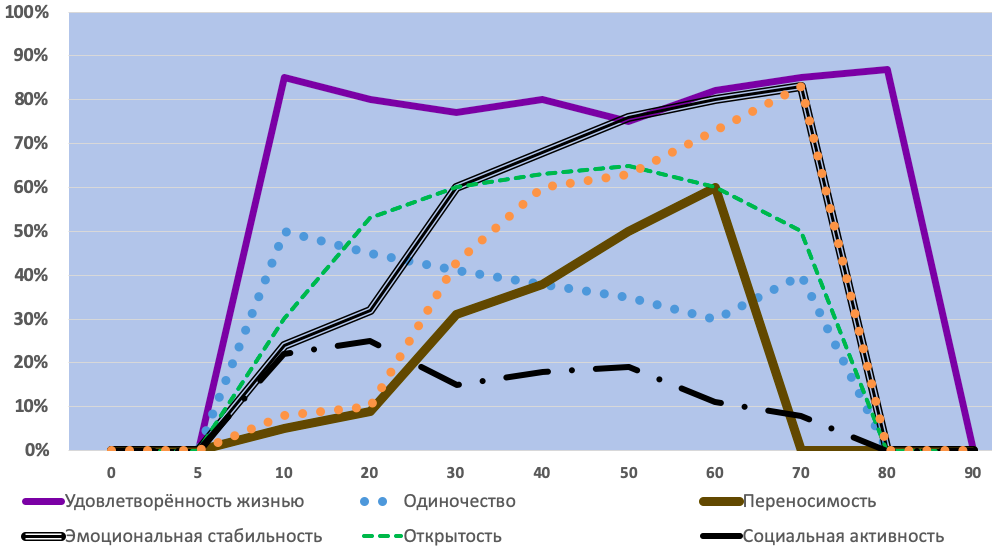
Knowledge and implementation of norms and rules accepted in society. Decency and diligence. It depends very much on cultural norms and characteristics of upbringing. Once my five-year-old daughter and I went on vacation to Alsace. We walked in the maze of medieval streets and I looked with curiosity in tiny patios, flowering summer courtyards.
- Mum! - This little resident of the EU declares to me: You cannot climb on such places all the time. It also says "Privat".
Portability (benevolence).
Shows how well those around you tolerate your presence. Willingness to help, friendly attitude to others. Obviously, beautiful people (and their kinks) are much easier to tolerate than wrinkled and flabby people. Therefore, benevolence is simply obliged to grow with age, at least as compensation. As we can see from the graph, this is exactly what happens.
Loneliness The
percentage of people who feel lonely sometimes, often, or almost always. Contrary to expectations, young and old are more likely to suffer from loneliness.
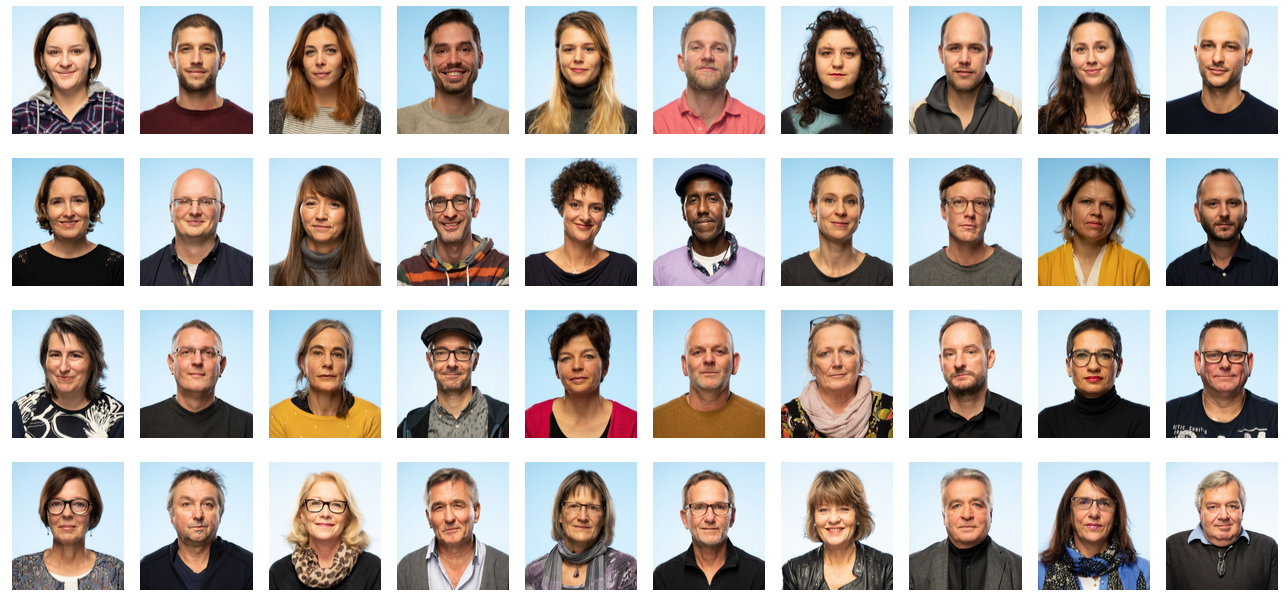
Within the framework of the sociocultural project "Forever young" researchersasked ten questions to a hundred Bern residents between the ages of ten and a hundred:
- How old do you feel?
- How do you deal with aging?
- How long do you want to live?
- What age do you think is the best?
- How exactly would you like to age?
- Are you doing anything to slow down aging?
- At what age are people considered old?
- Do you dream of immortality?
- Do you feel the fear of death?
- What else would you like to experience, experience in the rest of your life?
Is there an age? There is. And if not"?
Reject the unambiguousness of truths,
You are so many years old today,
As in Besingi of underwater rapids.
Is there an age? No. And if yes?
But in Besingi the water boils,
It will rush you there,
Where not everyone is familiar,
But the feeling is gratifying: The
rapid is transparent from the heights.